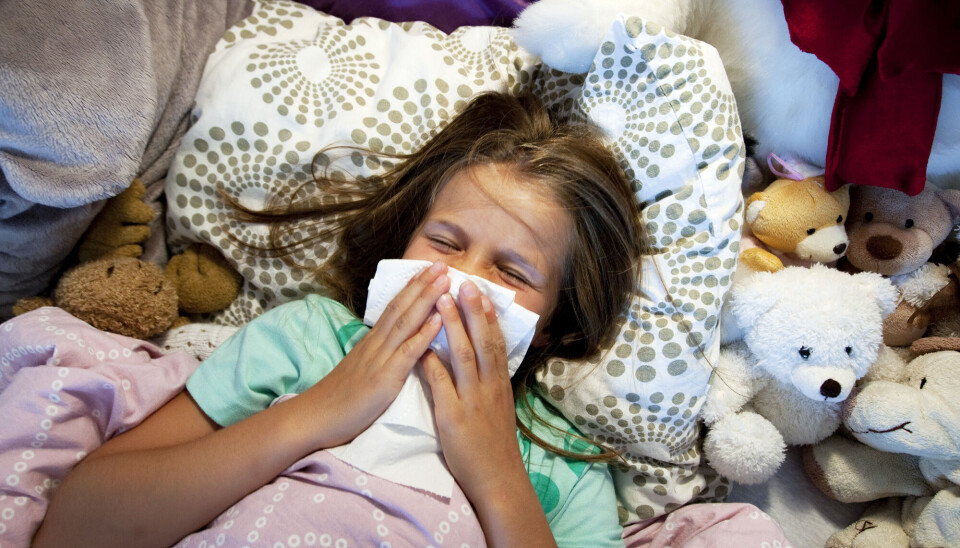
Common cold can make children immune to Covid-19
Children can develop immunity against Covid-19 after having fought off a particular type of cold virus. The ability to develop such immunity decreases with age.
During the pandemic, doctors and researchers noticed that children who were infected with the SARS-CoV-2 virus did not get as ill as adults. There are probably many reasons for this. One of them may be stronger immunity against colds caused by common human coronaviruses. There are at least four such viruses, and they have circulated in the world for several decades before the pandemic.
Researchers at the medical university Karolinska Institutet in Sweden have collaborated with Norwegian and Swiss researchers to find out more.
“Our measurements showed that most children become immune to the common cold coronaviruses before they turn five years old. One of these, called OC43, has some common features with the SARS-CoV-2 virus,” says immunologist Fridtjof Lund-Johansen from the University of Oslo.
“The Swedish researchers did in depth analyses of a type of immune cells in the blood called T-cells. They found that the children had T-cells that react to both OC43 and SARS-CoV-2. The amount of such cells, however, seems to decrease with age. This could be part of the reason why children are less exposed to serious Covid-19 illness compared to older people,” he explains.
Immune by the age of two
The researchers in Sweden studied blood samples from 48 children aged 2 to 6 years old, as well as 94 adults, taken from before the pandemic. They also studied blood samples from 58 persons who had just gotten well after a Covid-19 infection. The study was recently published in the journal Proceedings of the National Academy of Science (PNAS).
“Our contribution to this study was to measure antibodies against different viruses. The researchers at Karolinska contacted us because quite early on during the pandemic, we developed a method to measure antibodies against several different viruses from just one drop of blood. This was of particular importance in this case, as they only had very small amounts of blood from the children,” Lund-Johansen explains.
The results suggest that children already by the age of two have developed this immunity.
Tailored vaccine
The findings also show how the response develops and changes over time. The protective effect of these common colds declined with age.
“Together with the Norwegian Institute of Public Health we have studied large series of blood samples form Norway, taken from people aged 0 to 90, that show the same effect,” says Lund-Johansen.
The researchers believe the findings are important when monitoring and developing vaccines in the future. The knowledge could lead to more age appropriate vaccination programmes for children and adults.
“In the next round, we want to do similar studies of younger and older children, teenagers and young adults, in order to better understand the immune response against the coronavirus from childhood and to adulthood,” says Marion Humbert, Postdoctoral researcher at Karolinska.
Translated by: Ida Irene Bergstrøm
Read the Norwegian version of this article on forskning.no



































